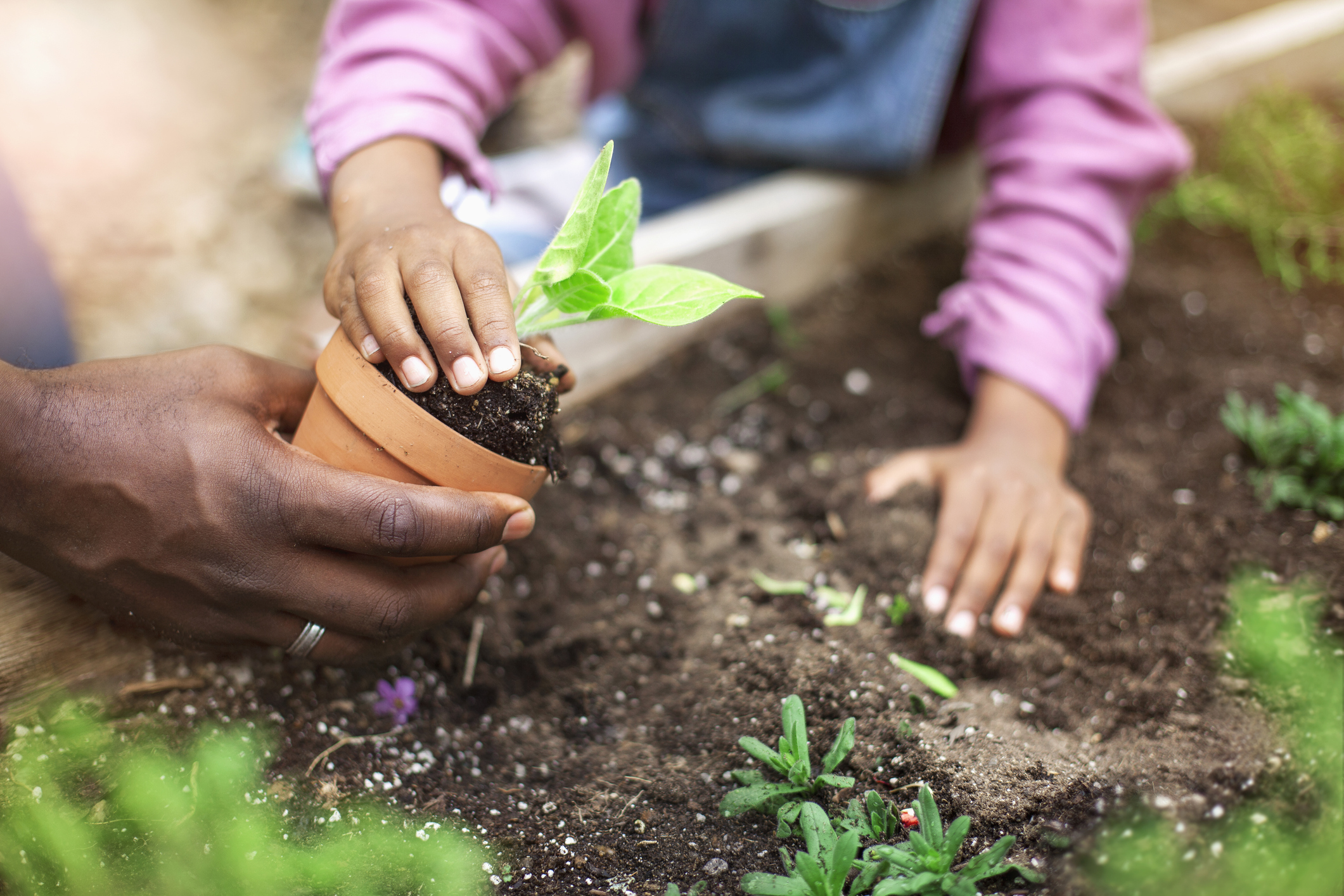Let this Earth Month be your starting point for becoming an advocate for our Earth’s health all year long. The health of the planet has a big impact on our individual health and well-being. Pollution and litter affect the environment and, as a result, can also affect our physical and mental health. Choose to take small steps when possible to help improve the health of our planet, as well as the health of you and your family!
Plant a tree, shrubs, or grasses around your house or neighborhood to help prevent soil erosion, absorb CO2 from the air, and beautify your home space.
Protect the pollinators! About 75% of all plants, including those in our yards, gardens, and parks, depend on pollinators to reproduce and grow (National Environmental Education Foundation). Pollinators include bees, hummingbirds, butterflies, moths, beetles, ants, wasps and other small animals. Make your outside space friendly and habitable to these important creatures by:
- Planting a variety of plants that bloom from early spring to late fall
- Reducing or eliminating pesticides—they can be particularly harmful to bees!
- Create habitats and “food” stations such as bee condos, bat boxes, hummingbird nectar feeders, and butterfly bushes and feeders
Eat foods that are raised or grown locally. From clearing land to grow food, transporting food from its source to the store, and packaging that ends up in the landfill, there are many ways the food we eat affects the environment. One of the easiest ways to reduce this impact is purchasing foods, meat or produce that has been raised or grown locally–plus you know it’s fresh and in-season.
If time and space permits, you can even further help the environment by planting your own garden. Check out this blog post for tips! Share your bounty with friends, family and neighbors.
Join a Community Supported Agriculture farm (CSA). If you don’t have the time or space to start your own garden, a CSA is a great way to participate in growing and tending to your own crops, while getting to share in the harvest. By joining, you purchase a share of the crops of the farm as well as volunteer to do a share of the work. Check out Localharvest.org to find a CSA in your area.
Limit your paper use. Opt for paperless billing, subscribe to email versions of catalogs, and unsubscribe yourself from any unsolicited mail you may receive. Click here to learn how to opt out from junk mail.
Recycle appropriate materials to cut down on trash heading to the landfill (and sometimes our oceans and other waterways). Contact your local municipality to determine what is or isn’t recyclable, and set up an easy system in your home to make sure anything that can be recycled is. You can search by location to find places to recycle your paper and many other items here.
Be more thoughtful about your energy and water consumption to reduce your footprint and your bills! Try to cut down on long showers most days, unplug electronics when they’re not in use, and do a quick sweep of the house before bed or when heading out to make sure no lights have been left on.
Filter your own water and use reusable water bottles. Using at-home filters, like pitcher or faucet filters, can reduce the amount of plastic bottles you use each month. One water pitcher filter can actually replace up to 300 16-oz. plastic bottles from being used! (And don’t forget, if you do buy bottled water, always recycle the bottles.)
Consider alternate transportation. If you live in a city with public transportation, try to utilize trains or buses instead of driving your own car, cutting down on emissions into the environment. Alternately, consider biking or walking if your destination is close by. Another idea is to carpool if you and a friend or coworker are headed in the same direction.
By taking small steps to lessen your individual impact on the environment, together we can make a big difference!



